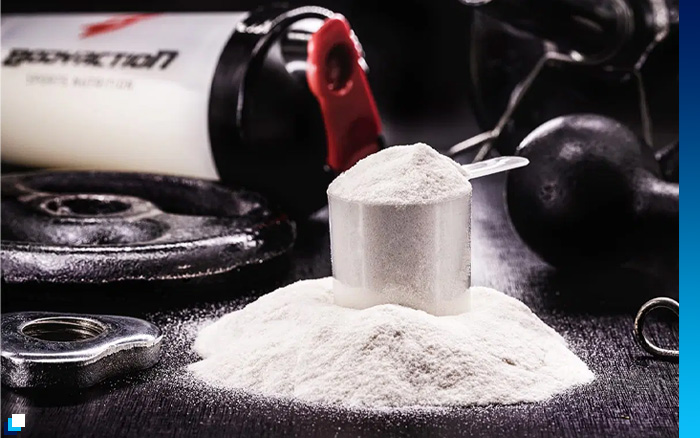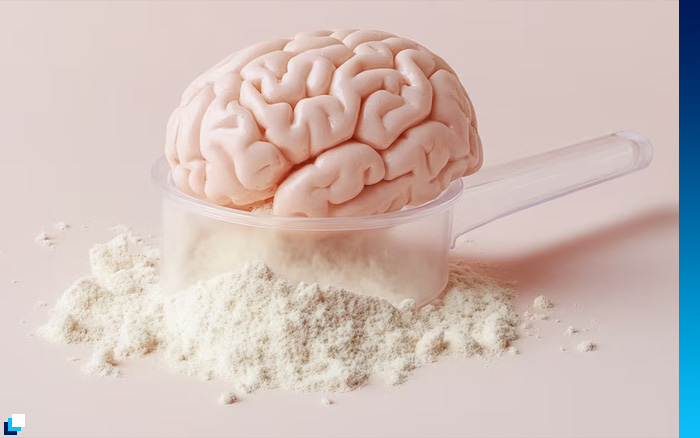Creatine: The Supplement That Goes Beyond Muscle
Creatine is widely recognized as one of the most extensively studied supplements in the world of sports, traditionally associated with increased muscle mass and enhanced physical performance. However, recent research has broadened its scope, revealing its influence on cognitive function, mental health, and various life stages—sparking discussions about its classification and inclusion in everyday diets.

Essential Roles of Creatine in the Body
As reported by the BBC, creatine occurs naturally in the human body and plays a crucial role in the management and storage of cellular energy. This compound is primarily produced in the liver, kidneys, and pancreas, then transported to the muscles and brain, where it acts as an immediate energy source—especially during short bursts of intense physical effort.
Its primary mechanism involves the formation of phosphocreatine, an energy reserve system that allows cells to access quick energy when demand is high, such as during exercise or metabolic stress.

Why Supplementing with Creatine Is Recommended
Although the body can synthesize creatine, endogenous production is often insufficient to meet total needs. Therefore, many people also rely on dietary creatine. Foods like meat and fatty fish are key natural sources. For individuals with restrictive diets, such as vegans, or those seeking to enhance physical and mental performance, supplementation may be advisable.
Benefits include improved muscle function, physical endurance, and recovery. Emerging evidence also suggests broader health advantages.
Potential Benefits Beyond Muscle Growth
Recent studies explore creatine’s effects beyond sports performance. These include:
- Reduction of post-viral fatigue
- Improved cognitive function under stress
- Antioxidant potential
- Alleviation of menopausal symptoms
- Slower tumor progression (based on animal studies and epidemiological data)
One revealing finding showed that older adults consuming more creatine had a lower risk of cancer. Research also investigates its positive impact on memory and attention, especially in sleep-deprived or mentally overworked individuals.
Creatine and Cognitive Function
A study by Forschungszentrum Jülich in Germany, led by Ali Gordjinejad, showed that one-time supplementation enhanced cognitive processing speed in sleep-deprived individuals. The stress increased energy demands in the brain, explaining this result. However, the high dosage used warrants caution.

Terry McMorris from the University of Chichester notes that while cognitive improvement data is promising, it is not yet conclusive due to variability in doses and testing methods.
Creatine and Mental Health
A study combining creatine with cognitive-behavioral therapy in depression patients showed greater improvement than therapy alone. This is attributed to creatine’s role in brain energy and neural communication. Vegans, who have lower creatine levels, may particularly benefit.
According to the BBC, a study involving long COVID patients showed improvements in brain fog and concentration following creatine supplementation.
Creatine in Fertility and Development
Creatine plays a vital role even before birth, contributing to:
- Sperm motility
- Placenta formation
- Fetal growth
In complicated pregnancies like preeclampsia, the body increases creatine levels. During infancy, breast milk is the primary source of creatine.
Creatine in Aging
In older adults, creatine serves as a defense against sarcopenia (age-related loss of muscle mass and strength). Supplementation can improve strength and functionality, supporting active aging.
Consumption Recommendations
- Intake: Approximately 1 gram per day
- Sources: Usually met through diet unless in specific cases (e.g., vegans, pregnant women)
- Status: No official daily recommendations yet, but experts suggest considering it a semi-essential nutrient
Researchers recommend developing specific guidelines for groups such as women, older adults, and vegetarians.
Conclusion
Creatine is more than just a sports supplement. Its impact extends to brain, emotional, metabolic, and reproductive health. While research continues, it is already emerging as a key supplement for overall wellness across various stages of life.
